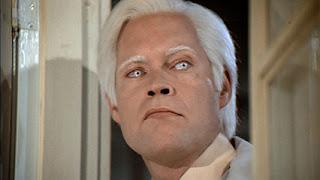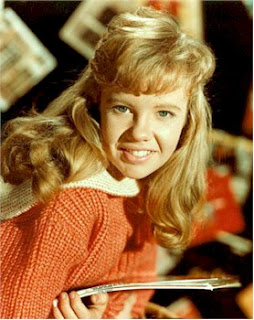Wise: Werth!
Werth: With all the cake from our recent birthday salutes, I'm busting out of my pants.
Wise: Cake just wants you to be happy. It's the pants that double-crossed you.
Werth: Today is really a special birthday, though, as it would have been Hollwood icon Cary Grant's 109th birthday.
Wise: Which means that Taylor Swift is just a bit too old to be his co-star.
Werth: In his later years, Hollywood did have a habit of making Grant the romantic partner for some much younger leading ladies. But in the 1940 classic His Girl Friday, Grant was evenly matched age- and acting-wise with the fast-talking Rosalind Russell. Grant is Walter Burns, a sly, underhanded newspaper editor who is willing to do anything to break the story. Russell is Hildy, his recent ex-wife who stops by the office to let him know she's not only quitting his rag,
but she's engaged to be married to insurance salesman Bruce Baldwin who "looks like Ralph Bellamy" (a punchline paid off by the fact that Bruce is played by Ralph Bellamy).
Wise: Making him prince of the second banana role.
Werth: Walter refuses to lose his best reporter and his wife, so he concocts a plan to trick Hildy into helping with one last story hoping she'll miss her train to Albany and a "normal" life. Walter's plan is helped along by the fact that a controversial execution is about to take place and Hildy can't resist covering it.
Howard Hawks directed His Girl Friday at a breakneck pace with the comic zingers, sly glances, and even the stripes on Hildy's hat and coat zipping by so fast that we have to lean forward to catch every wonderful moment. It's the perfect pacing for a story about journalism, racing across the screen like an AP newsflash.
Wise: Although at the time, it must have been the teletype machine.
Wise: Grant plays an equally appealing, although more sinister, character in Suspicion (1941). As irresponsible playboy Johnnie Aysgarth, Grant stumbles into the train compartment of bookish Lena McLaidlaw (Joan Fontaine) and promptly scams her for first class fare before gradually falling for her.
After a whirlwind romance, the pair elope, much to the disapproval of Lena's staid—and wealthy—parents. After they return from a grand honeymoon, Lena begins to realize that Johnnie's finances are a tangle of debts, promises, and lost bets at the racetrack. This being an Alfred Hitchcock film, she also begins to suspect that her beloved husband has a darker side.
Wise: As Johnnie's financial troubles mount, she begins to wonder to what lengths he'll go to shore up his failed business ventures. And when his best pal—and erstwhile business partner—turns up in Paris dead under mysterious circumstances, she begins to fear for her life.
Wise: Fontaine won the Academy Award for this, her second outing with Hitchcock (she was also nominated for her first, Rebecca, the year before), and her evolution—from a dowdy spinster to a woman possessed by lust and finally to a prisoner of her own fears—unfolds thrillingly, yet believably.
Of course Grant's performance provides the perfect support: his charm could just as easily melt an old maid's frozen heart as it could drain the lifeblood from her veins. But as a pair, the two make one of Hitchcock's most erotic screen couples. Grant's roguishness barely conceals his carnal desires, while Fontaine's slightly breathless performance makes audiences wonder if she might willingly sacrifice her life to her husband's gambling addiction in exchange for just one more roll in the sack.
Werth: Speaking of sacks, I need something to wear that has a little more give than these pants.
Wise: Just have another piece of cake and we'll both wear muumuus for next week's Film Gab.







---Cary-Grant,-Joan-Fontaine-791379.jpg)








































